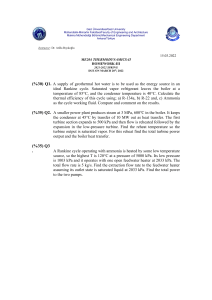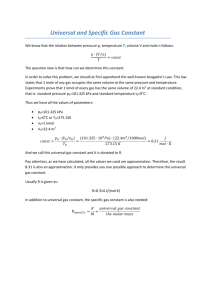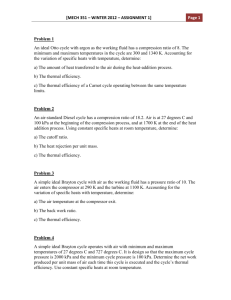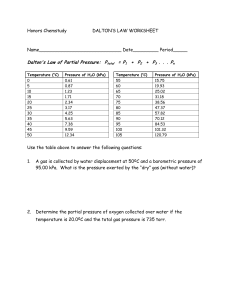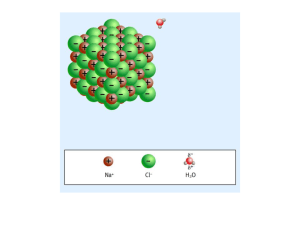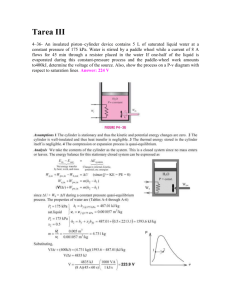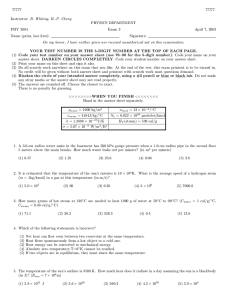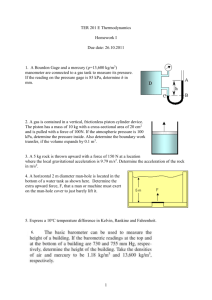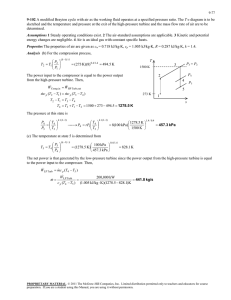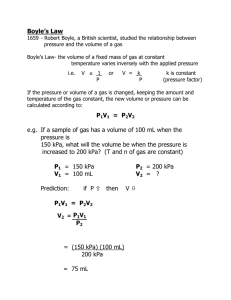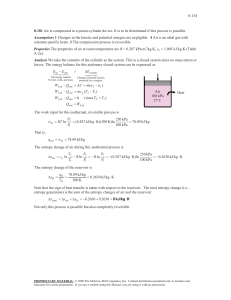File
advertisement
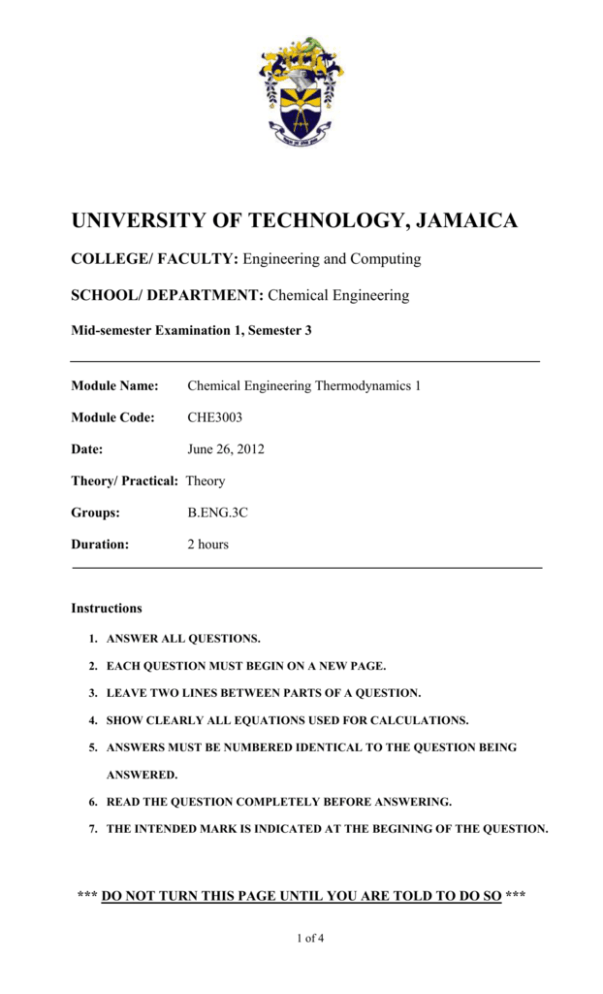
UNIVERSITY OF TECHNOLOGY, JAMAICA COLLEGE/ FACULTY: Engineering and Computing SCHOOL/ DEPARTMENT: Chemical Engineering Mid-semester Examination 1, Semester 3 Module Name: Chemical Engineering Thermodynamics 1 Module Code: CHE3003 Date: June 26, 2012 Theory/ Practical: Theory Groups: B.ENG.3C Duration: 2 hours Instructions 1. ANSWER ALL QUESTIONS. 2. EACH QUESTION MUST BEGIN ON A NEW PAGE. 3. LEAVE TWO LINES BETWEEN PARTS OF A QUESTION. 4. SHOW CLEARLY ALL EQUATIONS USED FOR CALCULATIONS. 5. ANSWERS MUST BE NUMBERED IDENTICAL TO THE QUESTION BEING ANSWERED. 6. READ THE QUESTION COMPLETELY BEFORE ANSWERING. 7. THE INTENDED MARK IS INDICATED AT THE BEGINING OF THE QUESTION. *** DO NOT TURN THIS PAGE UNTIL YOU ARE TOLD TO DO SO *** 1 of 4 For ALL Calculations: Take the work done BY the system to be negative (-ve) and the work done ON the system to be positive (+ve). NO mark will be awarded for answers with incorrect sign convention. Question #1 [15 marks] The following heat engines produce power of 75000 kW. Determine in each case the rates at which heat is absorbed from the hot reservoir and discarded to the cold reservoir. a.) A Carnot engine operating between heat reservoirs at 476.85 oC and 26.85 oC. [7] b.) A practical engine operating between the same two heat reservoirs but with a thermal efficiency of 65% of the maximum possible value. [8] Question #2 [20 marks] One mole of an ideal gas, Cp = (5/2)R and Cv = (3/2)R, is compressed adiabatically in a piston/cylinder device from 300 kPa and 298.15 K (25°C) to 800 kPa. The process is irreversible and requires 40% more work than a reversible, adiabatic compression from the same initial state to the same final pressure. What is the entropy change of: a.) the gas? b.) the surrounding? Question #3 [25 marks] H2O at 5000 kPa and 80 oC enters a horizontal boiler through a 25 mm - diameter tube with a velocity of 3 m/s. The product from the boiler is then sent to a turbine where 42500 kJ/kmol of shaft work is produced. The exhaust from the turbine is carried through a 300 mm - diameter tube and is at 100 kPa and 150 oC. Taking the boiler and turbine (together) as the system, what is the heat transfer rate in kW? Question #4 [40 marks] An ideal gas initially at 600 K and 1 MPa undergoes a four-step mechanically reversible cycle in a closed system. In step 12, pressure decreases isothermally to 300 kPa; in step 23, pressure decreases at constant volume to 200 kPa; in step 34, volume decreases at constant pressure; and in step 41, the gas returns adiabatically to its initial state. a.) Sketch the cycle on a PV diagram. b.) Determine (where unknown) both T and P for states 1, 2, 3, and 4. c.) Calculate Q, W, ∆U, and ∆H for each step of the cycle. Take Cp = (7/2)R and Cv = (5/2)R. Total Marks = 100 ***** END OF PAPER ***** 2 of 4 Formula Sheet 2 𝜂= 𝑊𝑏 = − ∫ 𝑃𝑑𝑉 1 𝑃1 𝑉1 𝑃2 𝑊= [( ) 𝛾 − 1 𝑃1 𝛾−1 𝛾 𝜂𝑐 = − 1] 𝑇𝐻 − 𝑇𝐶 𝑄𝐻 − 𝑄𝐶 = 𝑇𝐻 𝑄𝐻 ∆𝑆 = 𝐶𝑝 ln ∆𝑢2 ∆𝐻 + + 𝑔∆𝑧 = 𝑄 + 𝑊𝑠 2 𝑇2 𝑃2 − 𝑅 ln 𝑇1 𝑃1 ∆𝑆 = ∫ 𝑄𝐻 = 𝑄𝐶 + 𝑊 3 of 4 𝑊 𝑄𝐻 𝑑𝑄𝑟𝑒𝑣 𝑇 4 of 4
